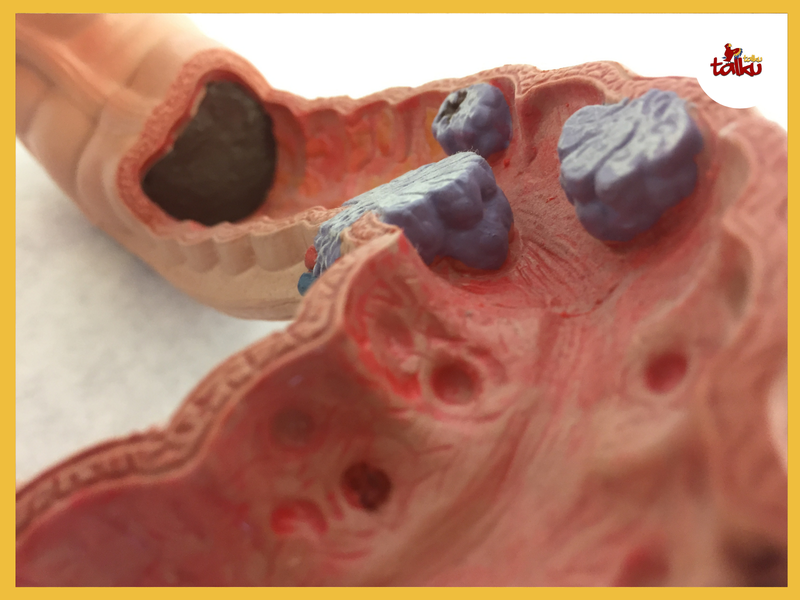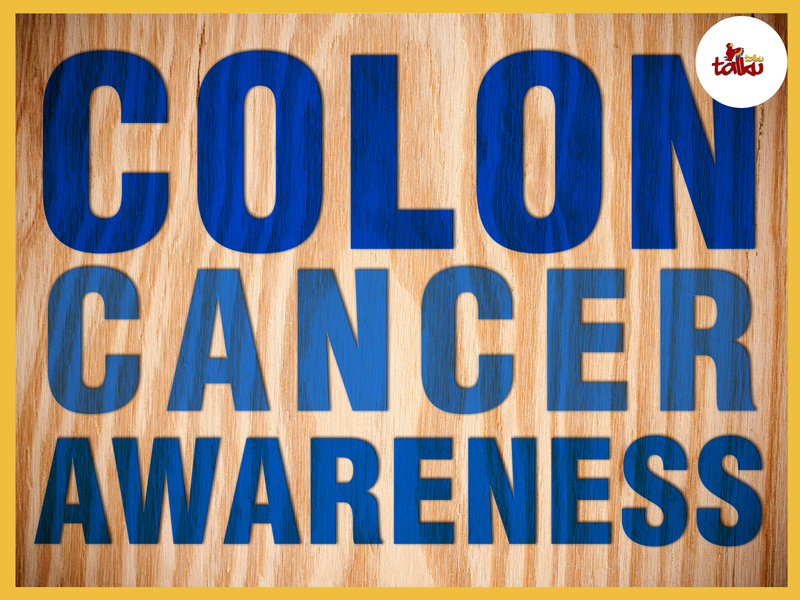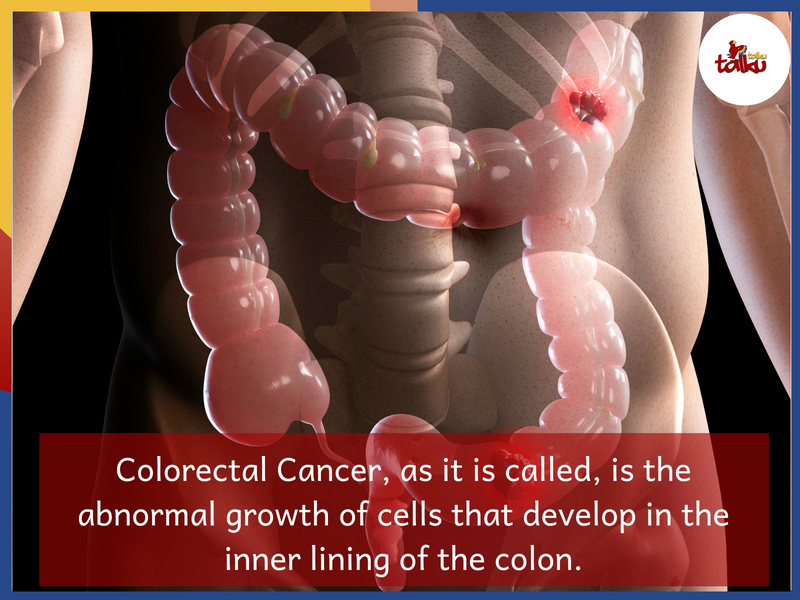Colon cancer is a disease that ravages the body and leaves it weak. If care is not taken, this disease could take one’s life. Not that colon cancer is the only cancer that kills, but it is the area of focus of today’s interview. We interviewed Dr. Abdulazeez Abdulhameed (MBBS), a General Practitioner and Medical Superintendent at Oakfield Specialist Hospital, Abuja about colon cancer and how early detection could help one’s diagnosis. Below are excerpts from the interview.

Please introduce yourself?
My name is Dr. Abdulazeez Abdulhameed. I am a General Practitioner and a Medical Superintendent at Oakfield Specialist Hospital, Abuja.
In your own words, what can you tell us about colon cancer?
Colorectal Cancer, as it is called, is the abnormal growth of cells that develop in the inner lining of the colon. This can lead to cells that invade the colon and even through the colon. It can also spread to other areas of the body, and this process is called metastasis. When you hear a doctor say the cancer has metastasized, this simply means that the cancer has spread to other areas or organs of the body.
This is very bad news for the patient because the cancer is growing and invading more parts of the body. Most cases of colorectal cancer, if not all, arise from a polyp. A polyp is an abnormal clump of cells that form in the body and you can find them on places like the stomach, colon, sinuses, bladder, or even on the skin. Polyps form because of some kind of damage done to the DNA cell cycle.
What are the risk factors for getting colon cancer?
It depends largely on the individual and it varies. There’s no particular cause of cancer but some factors can increase one’s chances of having cancer. We call it a risk factor. Here are some risk factors for colon cancer. Chromosomal instability, genetic predisposition such as familial adenomatous polyps and hereditary non-polyposis colon cancer; family history of colorectal, previous colorectal (even when one goes into remission, the cancer could come back. Remission is when someone who has cancer becomes cancer-free. But the risk of the cancer cells coming back is high).
READ ALSO: Check this 5 Reasons: why you need to drink more water
There are a lot of risk factors, to be honest. Someone who has a history of ovarian, endometrial, or breast cancer, someone who is above 50 years could have colon cancer. Some other risk factors are gender (colon cancer is more common in females than males while rectal cancer is more common in the male gender), race, obesity/ sedentary lifestyle, a diet rich in red meat and processed food, low fibre diet; inflammatory bowel disease/ abdominal radiation during childhood; radiation therapy for prostate cancer, tobacco, and alcohol use.
It is important to know the risk factors so as to make life changes or adjustments that would reduce the likelihood of getting cancer. There is no automatic or straightway to this. This could happen to anybody. It could even happen to a doctor or someone who takes good care of their body. We all have to be vigilant.
What are the symptoms of this disease that you have experienced your patients have?
Patients experience symptoms based on the stage of colon cancer they have. Some of the symptoms a patient suffering from colorectal cancer could experience are abdominal discomforts, flatulence, bloating, fullness, colic, unexplained weight loss, anemia, loss of appetite, constant tiredness or fatigue, alternating bowel habits (diarrhea alternating with constipation which may or may not contain blood, large bowel obstruction, abdominal distension, generalized abdominal pain, bright red or dark red blood in the stool and/or narrower/thinner stool than normal. It depends on the stage and severity of the cancer.

We have a number of celebrities that have died from colon cancer. Sunny Okosun, a Nigerian music legend died in 2008 from colon cancer. The most recent loss the world suffered is the death of Chadwick Bozeman, the Black Panther actor. He would have been 44 years old on the 29th of November, 2020. In order to avoid or reduce the number of people we lose to cancer, what can we can do to reduce the risk of contracting this disease?
May their souls rest in peace. I would advise that everyone gets screened regularly. Early detection is key; it could save your life. We can also increase the consumption of healthy foods, high fibre diets, vegetables, fruits, whole grains and stay away from red meat and processed food. The consumption of processed food is not a good idea because of the chemicals used to preserve it.
You could also take multivitamins D&E, folate, selenium, calcium supplements. Adopt a physically active lifestyle, maintain a healthy weight, and avoid tobacco and alcohol use.It is very important to know that not only men are predisposed to colon cancer. In fact, colon cancer is more common in females than it is in the male gender. But the dual masquerade, which is colorectal cancer, can equally affect both genders.
What’s the treatment plan for colon cancer?
The treatment plan is based on cancer stage and its multimodality. So, if it is stage 1 colon cancer, then the patient will need surgery alone. If the colon cancer is stage 2, then the patient will need surgery with or without chemotherapy, depending on the case. A stage 3 colon cancer patient will need both surgery and chemotherapy. A stage 4 patient will need chemotherapy alone and in some cases surgery.
What is the average time for a treatment plan?
There really isn’t any average time for a cancer treatment plan. The time totally depends on the stage of cancer, the compliance of the patient, and the body’s response to treatment. A series of tests, repeated biopsy, follow-up investigation tests, colonoscopy, and the outcome of repeated barium enema would let the doctor know if the treatment is working. These tests would be taken at intervals during the course of treatment in order to guide the specialist on the next course of action.
What other cancers are men susceptible to? And what are your recommendations and advice to men concerning this?
The other most common types of cancer that men are susceptible to are prostate cancer and rectal cancer. My advice to men who have a first-degree relative positive history of colorectal cancer, ovarian, endometrial, and breast cancer is that they should get screened regularly. I say so because early detection is very important. The earlier you find out, the better.
How does having colon cancer affect one’s quality of life?
It depends on the stage of cancer, to be honest. It totally depends on that, that is why I always emphasize the need to test regularly and detect the disease early.
I have heard of clinical trials. Do we have anything like that in Nigeria and how does it work?
There was a study at the University of Ibadan showing that in every 100,000 persons, there are about 2-3 persons with Colon cancer. (2.9% of cases). There are other studies on colorectal cancer but they are faced with financial problems. So, it is not as prominent as we would like it to be in Nigeria.
What challenges do doctors and healthcare workers face when it comes to treating cancer patients?
The challenges we, doctors have with patients when it comes to this is self-denial. Some of them start to say God forbid, I don’t have cancer. And because of the God forbid syndrome, people present their symptoms very late. The colon cancer is in stages. So, when it gets to stage 3 or 4, there’s little or nothing we can do for the patients. But if it’s stage 1, we could easily perform a resection of the colon. What happens in a resection is that we reset the parts affected by the disease in order to get rid of the cancer-ridden section of the colon. We do a colostomy and hook them up with the colostomy bag to cope.
But some of the patients do not like this option either. They are always very sentimental about doctors conducting surgery on them. They usually say things like, how will I let them bring my colon out for a while before they return it? I will have to defecate inside a colostomy bag. Some patients have financial constraints. They want treatment but they are unable to get treatment because they can’t afford it.
This is why we need the government to come in to help. Another challenge we face as healthcare workers is that people believe in herbal concoctions for absolute care which worsens the patient’s condition. So, when the condition gets worse, they come back to the hospital but it is usually too late by then.



